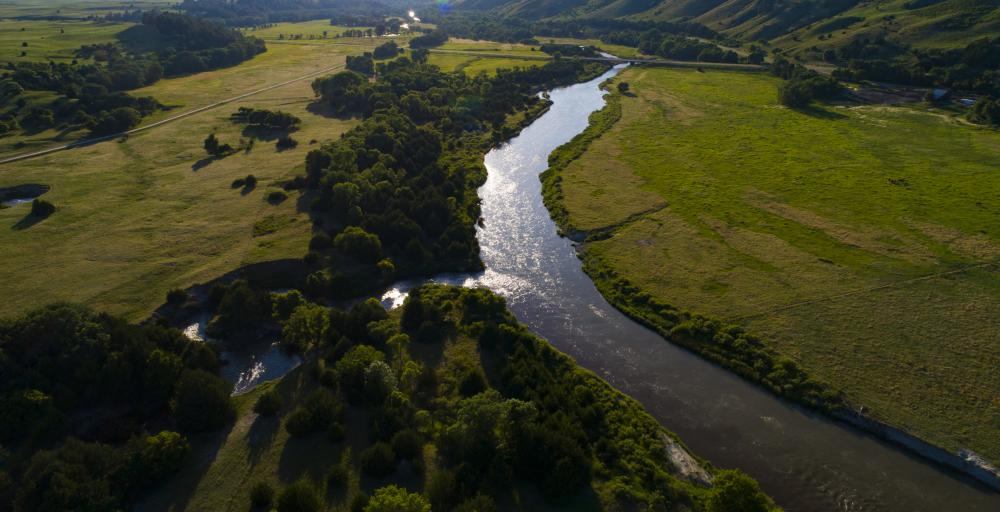
Rural Prosperity Nebraska, the community development arm of Nebraska Extension, is kicking off a series of discussions focusing on climate resiliency in rural communities. Funded by the U.S. National Science Foundation, this project, titled Rural Confluence, seeks to help educators understand and address climate issues that directly impact rural residents. An informational meeting takes place Tuesday in Niobrara. Niobrara area residents are encouraged to attend to learn how to get involved.
“The Niobrara community has endured a number of extreme weather events in the last handful of years,” said Jordan Rasmussen, program co-lead for Rural Prosperity Nebraska and the Extension educator leading the Rural Confluence discussions. “Flooding, drought, and wind events have directly impacted Niobrara area residents and the community as a whole, so with these discussions we’re hoping to learn from the people who lived through these extremes, and then figure ways that we can help them navigate them when they happen in the future.”
By drawing from the expertise and diverse perspectives of community members, the aim of the discussions is to create a new framework that empowers rural communities to thrive in the face of extreme weather events. For these discussions to be successful and effective for educators, the more people who participate, the greater the impact and benefits will be, said Rasmussen.
Community members who attend the discussion are encouraged to share past experiences, discuss present concerns, and engage in ideas and proposals for future actions. Resiliency needs vary from community to community, and from region to region, making the results of the discussions, and the workshops and plans that grow out of them, unique to those communities.
“In other words, this isn’t a one-size-fits-all program,” said Rasmussen.
On the contrary. This tailored, community-centric approach ensures that the strategies that are eventually put into place to mitigate the impact of climate extremes will meet the specific needs and goals of the residents in those specific communities.
“The degree and frequency of extreme climate events seem to be increasing,” said Mary Emery, director of Rural Prosperity Nebraska. “If we are prepared, not only for drought but for other events as well, we can decrease the impact of those events. We are hoping to learn how new developments in our understanding of climate extremes and resiliency can help Nebraska communities better prepare, and thus lessen, the impact of extreme climate events.”
In partnership with Oklahoma State, the Rural Confluence project will also team Rural Prosperity Nebraska up with Louisiana State University’s Gulf Scholars Program, Western Oklahoma State College and Northern Oklahoma College.
An informational meeting about the Rural Confluence project will be held Tuesday, April 9, at 7 p.m., at the Niobrara Public Schools Library, 247 NE-12, Niobrara.